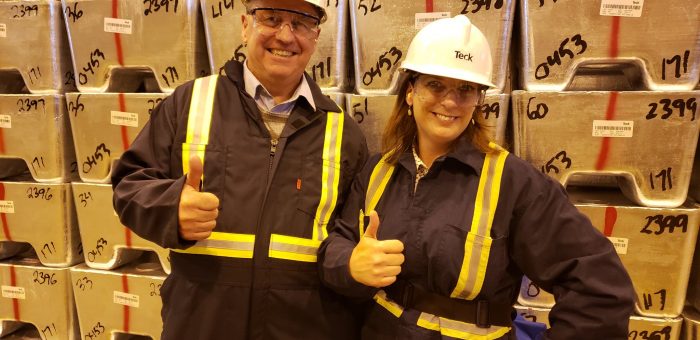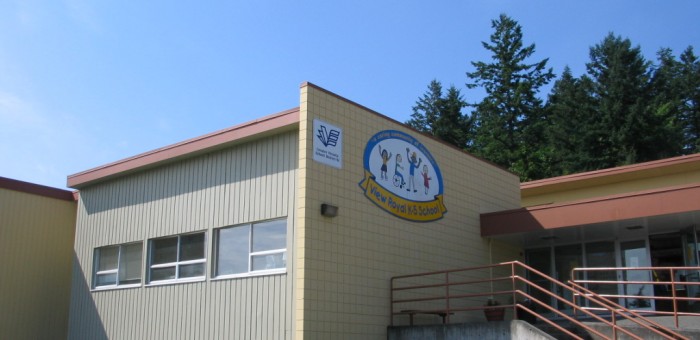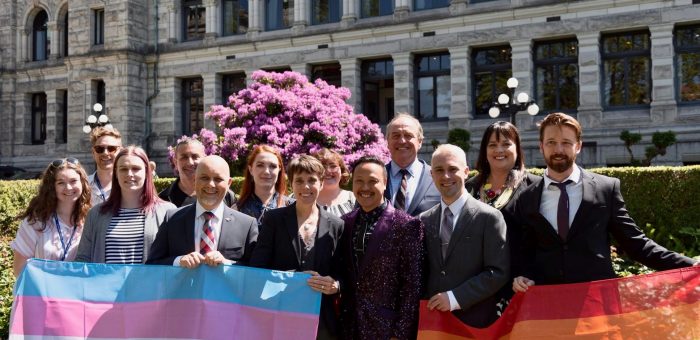Education
Presenting at the Clean Energy BC Spring Conference: Powering Generations — Legacy to the Future
Today I had the distinct honour of giving a keynote presentation at the 2019 Spring Conference of Clean Energy BC whose theme was Powering Generations: Legacy to the Future. After the presentation we toured the Teck smelter in Trail to explore innovation in the mining sector first hand.
Below I reproduce the text and slides of my speech.
Text and Slides of Speech
It’s a distinct honour for me to be invited to address you, the delegates to Clean Energy BC’s Spring Conference: Powering Generations: Legacy to the future.
 Over these past 25 years Clean Energy B.C. has been the voice of British Columbia’s Clean Energy sector and I am sincerely grateful for your ongoing contributions to our province.
Over these past 25 years Clean Energy B.C. has been the voice of British Columbia’s Clean Energy sector and I am sincerely grateful for your ongoing contributions to our province.
The BC Green Party and I share your goal to support the growth of British Columbia’s clean energy sector and we will continue to do what we can to improve the regulatory and economic environments for clean energy production through our work in the B.C. legislature.
Since first getting elected in 2013, I’ve watched growing uncertainty emerge in British Columbia’s clean energy sector. I’ve watched the Canadian Wind Energy Association pull out of BC. I’ve watched BC Hydro’s standing offer program grind to a halt.
I’ve witnessed the release of a poorly researched report to justify government’s ideological position on independent power producers. And I’ve watched a growing sense of overall frustration emerge as your sector struggles to remain viable.
Of course, as we all know, government’s decision to proceed with the construction of the Site C hydroelectric project was both unnecessary and fiscally-foolish.
It has undermined the investments many of you made in clean energy here in BC. And it puts the ratepayer on the hook for inevitable cost overruns down the road.
But we are where we are and for me, it’s important to look ahead.
I entered politics via an unusual route. By now, most of you know that prior to my election as the MLA for Oak Bay – Gordon Head (and subsequently becoming leader of the B.C. Green Party), I was Lansdowne Professor and Canada Research Chair in Climate Modelling and analysis at the University of Victoria.
I’d served as a Lead Author on the United Nations Intergovernmental Panel on Climate Change 2nd, 3rd, 4th and 5th scientific assessments. I was Chief Editor of the Journal of Climate and I had the honour of participating as a member of BC’s first Climate Action Team set up in 2007 under Gordon Campbell’s leadership.
The year 2007 was a remarkable period in British Columbia’s history with respect to the development of climate policy. It was also a particularly noteworthy time for me.
I’d been publishing papers in the field of climate science for more than two decades, all the while listening to political leaders around the world talk about the importance of dealing with global warming while concomitantly doing virtually nothing to reduce greenhouse gas emissions and offering staggering subsidies to the fossil fuel sector.
 But in 2007 in British Columbia I finally saw a government take the matter seriously and recognize the challenge of global warming for what it was: an economic opportunity for innovation like never before. Gordon Campbell recognized that early leadership would pay off and that all eyes in the world would be turned to BC in 2010 when we hosted the Winter Olympics.
But in 2007 in British Columbia I finally saw a government take the matter seriously and recognize the challenge of global warming for what it was: an economic opportunity for innovation like never before. Gordon Campbell recognized that early leadership would pay off and that all eyes in the world would be turned to BC in 2010 when we hosted the Winter Olympics.
On November 20, 2007 the Honourable Barry Penner, Minister of Environment, introduced the Greenhouse Gas Reduction Targets Act, which put into law British Columbia’s 2020 reduction target of 33% and a new 2050 reduction target of 80% relative to 2007 levels.
 The act also required carbon neutrality for the public sector, including universities, schools, hospitals, Crown corporations, and the government by 2010. And over the next several years as government rolled out its policy measures, BC head off on a path to meet its legislated targets.
The act also required carbon neutrality for the public sector, including universities, schools, hospitals, Crown corporations, and the government by 2010. And over the next several years as government rolled out its policy measures, BC head off on a path to meet its legislated targets.
But all of our successes started to unravel shortly after British Columbia’s provincial leadership changed in 2010. In fact, every year since the 2011 change of leadership, emissions have gone up.
Why? Because of the signal government sent to the market that our emissions reductions targets no longer mattered — that economic prosperity would be found in industries from the last century, and that they would help take us back there.
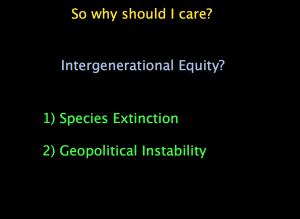 It happened almost immediately after the leadership of the BC Liberals changed. In fact, I remember participating with Judith Sayers, Paul Kariya and Graham Horn (from Innergex) at a press conference hosted by Clean Energy BC in September 2011 where we pleaded with government to stick with its plan to become self-sufficient in clean energy.
It happened almost immediately after the leadership of the BC Liberals changed. In fact, I remember participating with Judith Sayers, Paul Kariya and Graham Horn (from Innergex) at a press conference hosted by Clean Energy BC in September 2011 where we pleaded with government to stick with its plan to become self-sufficient in clean energy.
In 2012, knowing that scientists had done their job in defining the problem and that it was up to politicians to do theirs if we are to deal with the challenge of global warming — and they are not — I accepted an invitation to run as a candidate representing the BC Green party. I could no longer sit on the sidelines as the legacy of Mr. Campbell’s climate leadership was dismantled.
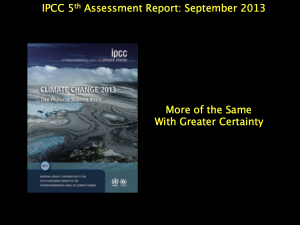 The BC Liberals under Christy Clark had stifled clean innovation and introduced policies that further entrenched “dig-it and ship-it” oil and gas development.
The BC Liberals under Christy Clark had stifled clean innovation and introduced policies that further entrenched “dig-it and ship-it” oil and gas development.
And were the BC Greens not holding the balance of power in a minor government, I fear that the BC NDP would be no different (as witnessed by the outrageous giveaway involved in their proposed further subsidies to the LNG industry).
When the market no longer supported these activities, successive governments doubled done by creating more and more subsidies in a desperate attempt to squeeze water from a stone.
 I often reflect back on the spring of 2017 when my colleagues and I were locked in negotiations with both the BC NDP and the BC Liberals as we hashed out the foundations of a confidence and supply deal. I reflect back to remind me of why I got into politics and why we ended up supporting a BC NDP minority government.
I often reflect back on the spring of 2017 when my colleagues and I were locked in negotiations with both the BC NDP and the BC Liberals as we hashed out the foundations of a confidence and supply deal. I reflect back to remind me of why I got into politics and why we ended up supporting a BC NDP minority government.
Climate scientists had done their job in defining the problem and that it was up to politicians to do theirs if we are to deal with the challenge of global warming. Only the BC NDP appeared serious in its desire to reduce our greenhouse gas emissions.
And so the seeds were planted for what would end up becoming CleanBC.
CASA – our confidence and supply agreement – underpins B.C.’s minority government. It is an agreement to work in good faith, with no surprises, with the B.C. NDP.
 CASA has provided the B.C. Green caucus with an opportunity to champion key aspects of our economic platform, and the ability to work in partnership with government on our priority issues like climate policy.
CASA has provided the B.C. Green caucus with an opportunity to champion key aspects of our economic platform, and the ability to work in partnership with government on our priority issues like climate policy.
From our perspective, of course, these two files are one and the same.
Two key elements of our 21st century economy platform were embedded in the CASA agreement to help us identify and hence seize economic opportunities in the emerging economy.
The first was the Emerging Economy Task Force set up to advise government on how to respond and adapt to emerging economic challenges and opportunities. Government needs modernizing so that it is considerably more responsive to technological innovation.
 The Emerging Economy Task Force looks to the future, identifying emerging trends and advising government on how to maintain our competitiveness and achieve prosperity amidst these changes.
The Emerging Economy Task Force looks to the future, identifying emerging trends and advising government on how to maintain our competitiveness and achieve prosperity amidst these changes.
The second element from our platform integrated into CASA was the Innovation Commission (now Innovate B.C.) as well as the appointment of an Innovation Commissioner.
The innovation commissioner serves as an advocate and ambassador for the B.C. technology sector in Ottawa and abroad, to enable B.C. companies to more easily tap into existing federal programs and build key strategic relationships internationally.
 I’m confident that both of these initiatives will continue to bolster and grow key sectors of our economy.
I’m confident that both of these initiatives will continue to bolster and grow key sectors of our economy.
But of course, the most important words in CASA from my perspective are:
“Implement a climate action strategy to meet our targets”
which is why we pushed government to legislate these in the spring of last year:
GHG emissions are to be reduced by at least 40 per cent below 2007 levels by 2030, 60 per cent by 2040, and 80 per cent by 2050.
Targets without a plan to meet them are not worth the paper they are written on. Canadian political history is littered with a legacy of missed targets. And that’s why we turned our attention to delivering a pathway to reach these targets.
A meaningful climate plan requires careful planning, innovative ideas, and a new economic vision for how B.C. will prosper in a changing and challenging world.
If we are to meet our legislated targets — we will be doing so with clean energy — likely following the lead of people in this room.
In that regard, B.C. is setup to succeed. From our access to cheap, renewable energy, to our educated workforce, to our innovative business community, to the quality of life we can offer here, together with British Columbia’s natural beauty, we have an opportunity to develop our Province into one of the most prosperous jurisdictions in the world.
 Our challenges are too big, and the consequences too profound, to ignore this opportunity.
Our challenges are too big, and the consequences too profound, to ignore this opportunity.
We stand to gain by building on the expertise that our neighbours have already developed in these areas. And yet, there is still so much room to grow in this sector, to improve upon current technologies and policy innovations.
The approval Site C was a terribly disappointing decision for me because I believe small-scale, distributed energy projects are the way of the future for B.C. and that we should fundamentally change the mandate of B.C. Hydro.
B.C. Hydro should no longer be the builder of new power capacity.
Rather, it should be the broker of power deals, transmitter of electricity, and leveller of power load through improving British Columbia power storage capacity.
Let industry risk their capital, not taxpayer capital, and let the market respond to demands for cheap power.
We need to optimize support for clean energy development, including grid storage for community or privately generated power and work with neighbouring jurisdictions to expedite the phase out of fossil fuel powered electricity generation.
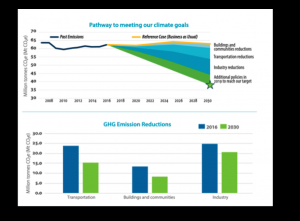 The future of economic prosperity in B.C. lies in harnessing our innate potential for innovation and bringing new, more efficient technologies to bear in the resource sector.
The future of economic prosperity in B.C. lies in harnessing our innate potential for innovation and bringing new, more efficient technologies to bear in the resource sector.
B.C. will never compete in digging dirt out of the ground with jurisdictions that don’t internalize the same social and environmental externalities that we value.
We will excel through being smarter, more efficient, cleaner and by working together to solve our problems.
This means that we not only export the dirt, but we also export the knowledge, technology and value added products associated with resource extraction.
To get a fair value for our resources that deliver maximum benefits to our communities, we need to get smarter and more strategic when it comes to embracing innovation.
Government should be doing more to support these initiatives and create fertile ground for a sustainable, resilient, and diverse economy.
We should be using our boundless renewable energy resources to attract industry, including the manufacturing sector, that wants to brand itself as sustainable over its entire business cycle, just like Washington and Oregon have done.
We should be setting up seed funding mechanisms to allow the B.C.-based creative economy sector to leverage venture capital from other jurisdictions to our province.
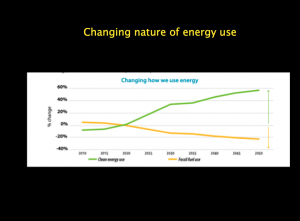 By steadily increasing emissions pricing, we can send a signal to the market that incentivizes innovation and the transition to a low carbon economy.
By steadily increasing emissions pricing, we can send a signal to the market that incentivizes innovation and the transition to a low carbon economy.
The funding could be transferred to municipalities across the province so that they might have the resources to deal with their aging infrastructure and growing transportation barriers.
Yes, we should be investing in trade skills, as described, for example, under a B.C. jobs plan.
But we should also be investing further in education for 21st century industries like biotech, high tech and cleantech. It’s critical that we bring the typically urban-based tech and rural-based resource sectors together.
Similarly natural gas has an important role to play, but we should use it to use in our domestic market and explore options around using it to power local transport.
Global investment trends are being driven by the world’s shared Paris commitments, predicated on the fact that keeping global warming under 2 degrees Celsius is far more cost-effective than dealing with the effects of a temperature rise above that level.
This shift presents a significant opportunity for B.C.’s economy.
Our province is well poised to bolster its leadership in the cleantech sector – we have a strong competitive advantage in the building blocks required to foster a knowledge-based economy.
For we know responding to the challenge of climate change is both an intergenerational opportunity and an intergenerational responsibility.
CleanBC’s sectoral approach doesn’t simply show a plausible pathway to meeting our targets – rather, it drives a return to the vision of a clean 21st century economy.
We have one of the best public services in the world and for a long time they have had the policies ready to get us there.
 What has been missing is political leadership. This minority government must – and will – show that leadership.
What has been missing is political leadership. This minority government must – and will – show that leadership.
I’m hopeful, but still wary of our starting point and the strength of the status quo.
Yet I am truly excited about the prospects that lie ahead for this minority government. We’ve accomplished a remarkable amount already in just two short years.
But there is so much more to do. The years ahead will require all of us to come together to look for areas where we can be partners – to drive the innovation that will enable us to electrify our economy and decarbonize our energy systems. I don’t doubt that many of the emerging solutions we need will in fact come from the people in this room.
The transition to a low carbon economy presents an exciting challenge for the Clean Energy sector. For example, one of the flagship proposals within CleanBC is the aggressive Zero Emission Vehicle which came into law with the passage last week of the Zero Emission Vehicle Act.
 This act mandate that zero-emitting vehicle must make up 10% of light-duty vehicle sales by 2025, 30% by 2030, and 100% by 2040. The good news is that in the month of May alone, 15% of all new light-duty vehicle sales were zero-emitting.
This act mandate that zero-emitting vehicle must make up 10% of light-duty vehicle sales by 2025, 30% by 2030, and 100% by 2040. The good news is that in the month of May alone, 15% of all new light-duty vehicle sales were zero-emitting.
With the electrification of the transportation sector and our built environment comes the opportunity for innovation in smart grid systems.
Whether it be interconnecting myriad distributed production, with innovative local storage systems and point to point high voltage DC transmission, or whether it be the design of new electric transportation systems, or whether it be electrification of our natural resource sector, Clean Energy BC has a strong and vibrant future in our province.
And I remain committed to your sector and I ask that you help me help you. I don’t know what I don’t know. I don’t have all the solutions… but, I know that it is not this:
On the government’s approach to collective bargaining with the BCTF
In the legislature today I rose during Question Period to ask the Minister of Education what his government was thinking when they tabled their class size and composition proposals. I further asked what he thought this would do to the morale of B.C. teachers given that starting in 2002 and culminating in the landmark Supreme Court of Canada decision on November 10, 2016, the BCTF fought hard to restore provisions regarding their ability to bargain class size and composition.
In addition, I asked the minister how he reconciled his statement to the Globe and Mail on March 17th:
with the comments from BCTF president Glen Hansman to the Vancouver Sun on May 17:
Below I reproduce the video and text of our Question Period exchange.
The BC Green Party made public education our top priority in the last provincial election campaign. Our fully costed platform found more than $4 billion in new funds over four years in support of this priority.
Public education is the foundation of any modern society. The BC Green party believes fundamentally in the importance of intergenerational equity and a preventative rather than reactive approaches to problem solving. For example, you will hear a lot about the struggles with the fentanyl crisis and young adults. Governments are good at funding “harm reduction projects” (reactive) but often don’t realize that prevention is as critical. How many of our social problems today have arisen as a direct consequence of children growing up over the last dozen or so years without accesses to the services they needed to succeed (as they were often the first to get cut)? They still struggle.
Video of Exchange
Question
A. Weaver: Last week we heard from the BCTF that this government is putting forth essentially the same proposals in contract negotiations that the former government did in 2014. In particular, government has tabled larger maximum class sizes and fewer specialty teachers.
In 2014, the now Minister of Education stated that class size and composition was a “central issue” in the ongoing teachers strike at the time and that it was “critical” and that “class size and composition do impact learning outcomes.”
My question is to the Minister of Education. Starting in 2002 and culminating in the landmark Supreme Court of Canada decision on November 10, 2016, the BCTF fought hard to restore provisions regarding their ability to bargain class size and composition. What was government thinking when they tabled their class size and composition proposals, and what does he think this will do to the morale of B.C. teachers?
Answer
Hon. R. Fleming: I thank the member for the question, because he did indeed go through a litany of damaging years in public education in British Columbia that stand in stark contrast to the record of our government over the last 21 months. Let’s remember that for 16 years, that government over there, the opposition now, fought with teachers, ripped up contracts….
Interjections.
Mr. Speaker: Members. Members, the Minister of Education has the floor.
Interjections.
Hon. R. Fleming: I think they’re a little sensitive, Mr. Speaker, about losing in court…
Interjections.
Mr. Speaker: Members.
Hon. R. Fleming: …three times. Three times, Mr. Speaker.
Interjections.
Mr. Speaker: Members.
Minister of Education.
Hon. R. Fleming: Thank you, Mr. Speaker. It’s really sensitive, because they lost three times in the Supreme Court.
The point is, they wasted 12 years, they ripped resources away from kids and families, they demonized teachers, and they lost. We’re taking a different approach.
Interjections.
Hon. R. Fleming: I think the member who asked the question would like an answer. I think he would appreciate it, and here’s what the answer is. In 21 months, our government has added $1 billion of annual resource….
Interjections.
Hon. R. Fleming: We’ve hired 4,000 new teachers and 1,000 education assistants. Funding for students with special needs is up 23 percent. Rural education funding is at a record high and up under our government.
Mr. Speaker: Members.
Hon. R. Fleming: I would ask the members opposite to read some headlines they might not want to read. The Delta Optimist, the Kelowna Courier — each one of them is saying that for the first time in 15 years, they don’t have to cut budgets. They don’t have to fire teachers. They’ve got funding and a government that’s on their side.
Supplementary Question
A. Weaver: I thank the minister for the answer to the question. I’m not sure it was the question that I asked, but at least there was a long answer there, so I do appreciate the words and the facts being brought forward.
In 2014, the current Minister of Education spoke passionately about how the B.C. budget of the day: “It robs from the pocketbooks of ordinary British Columbians and fails to invest in the future.” He was talking about the lack of education support, specifically the lack of school support workers at the time.
According to the BCTF president, Glen Hansman, this new position of the B.C. government would: “Wipe out each and every word that teachers got back through the Supreme Court of Canada decision and replace it with watered-down language that’s worse than what exists in most school districts across the province.”
On March 17, the Minister of Education told the Globe and Mail this: “The table is set different than any set of negotiations in the last 16 years. Our government is not seeking any concessions. We are seeking changes that will benefit teachers and students.”
My question is to the Minister of Education. How does he reconcile this quote with the claims of the BCTF president?
Answer
Hon. R. Fleming: I thank the member for the question again. He’ll know this as somebody who was a former negotiator himself for labour: that bargaining is best done at the table. What I’m proud of is our government…. We have gone to the table in this round of negotiations earlier than ever before. We have set the table with record levels of funding. I can go through that list again for the members present, but they’ve all been at school announcements in their ridings, so they know about it firsthand.
We have also demonstrated respect to the teaching profession. We have now, I’m pleased to say, 197,000 public servants in British Columbia who have signed on with tentative agreements under the sustainable services mandating agreement. We have 25,000 CUPE K-to-12 education workers who are included in that group.
I would say to the member to also listen to Mr. Hansman. He said, going into the weekend, and I would echo this message with him: “We’re still optimistic that there will be a deal. We have five weeks until the end of the school year. The good news is that both sides have scheduled a lot of dates, so there’s a lot of room to talk. That’s positive. We didn’t have that in the last few rounds.” So I will respectfully allow elected trustees — who we restored, democratically, to the bargaining process — to do their work. They understand teachers. They work alongside teachers. The previous government fired them, and I think that was a huge mistake. That is the stark contrast that we have here.
If members want to think back exactly five years ago, they locked out teachers. They cut their pay. They provoked British Columbia’s education system, and it was a disaster. It led to the longest shutdown of schools in British Columbia history. We’re in a vastly different place, where we want to work with teachers and school districts and get a good deal that’s good for everyone.
Introducing a bill to end the practice of conversion therapy in British Columbia
Today in the legislature I tabled Bill M218: Sexual Orientation and Gender Identity Protection Act, 2019. This bill seeks to ban the practice of so-called conversion therapy by prohibiting the provision of the treatment to minors and the payment or reimbursement of conversion therapy through health insurance or MSP. All British Columbians deserve to be loved, supported and accepted, not persecuted for who they are. Below I reproduce the video and text of the Bill’s introduction.
Prior to introducing the bill, my caucus colleagues and I held a press conference indicating our intention to table the bill later in the day. I am very grateful to Peter Gajdics (survivor and author, The Inheritance of Shame: A Memoir) and Yogi Omar (queer activist and vice president, Vancouver Men’s Chorus), who joined us at the press conference to offer their views on the importance of this bill. My introductory remarks at the press conference are reproduced below.
I am also grateful to Rev. Dr. Cheri DiNovo (former Member of Provincial Parliament), Dr. Elizabeth Saewyc (Professor and Executive Director, UBC Stigma and Resilience Among Vulnerable Youth Centre), Nicola Spurling (president, Tri-Cities Pride), and Ian Bushfeld (BC Humanist Association), who kindly offered us words of support included in the media release (appended below).
Video of Introduction
Text of Introduction
A. Weaver: I move that a bill intituled Sexual Orientation and Gender Identity Protection Act, of which notice has been given in my name on the order paper, be now read a first time.
Conversion therapy is an abusive, dangerous practice that must be banned to protect the safety and health of British Columbians — children and youth in particular. This is, fundamentally, an issue of human rights. Medical and scientific associations, including the American Psychiatric Association and the World Health Organization, condemn the practice, but it continues to this day and it continues to this day in British Columbia.
It’s particularly important and timely to be advancing this ban today, as we hear news that the United Conservative Party of Alberta is walking back the previous government’s commitment to end the practice there.
This bill seeks to ban the practice of so-called conversion therapy by prohibiting the provision of the treatment to minors and the payment or reimbursement of conversion therapy through health insurance or MSP. All British Columbians deserve to be loved, supported and accepted, not persecuted for who they are.
I’m honoured to be standing alongside LGBTQ2S+ advocates, including survivors of conversion therapy, as we reaffirm the rights of all British Columbians to be who they are and to live in safety. It is because of your advocacy that we are here today.
Motion approved.
A. Weaver: I move that the bill be placed on the orders of the day for second reading at the next sitting of the House after today.
Bill M218, Sexual Orientation and Gender Identity Protection Act, 2019, introduced, read a first time and ordered to be placed on orders of the day for second reading at the next sitting of the House after today.
Press Conference Remarks
I am very pleased to be joined today by advocates and leaders from the LGBTQ2+ community in bringing forward a bill to end the abhorrent practice of so-called conversion therapy.
It is particularly important and timely to be advancing this ban today, as we hear news that the United Conservative Party of Alberta is walking back the previous government’s commitment to end the practice there.
Conversion therapy is an abusive, dangerous practice that should be banned to protect the safety and health of the LGBTQ2+ community – children and youth in particular.
This is an issue of human rights.
British Columbia has been a leader in protecting and celebrating the LGBTQ2+ community. We were the second province to extend marriage rights, and we continue to support the sexual orientation and gender identity program in BC schools. However, we know there is more work to do.
Over this legislative session, our team has worked collaboratively with members of the LGBTQ2+ community, health professionals, legislative drafters, and legal experts to ensure that our bill does everything within the provincial jurisdiction to prohibit this practice.
In this regard, British Columbia is currently behind much of Canada. Ontario banned this practice provincially in 2015, as did Nova Scotia in 2018. While we believe that this practice should not be happening anywhere in Canada, the federal government responded to this issue by saying it is up to the provinces to address this. So we will.
I am so thankful to the many community members who have worked with our team to develop this bill.
I want to thank a few people who are here today. Nicola Spurling, president of Tri-Cities Pride; Christina Winter, chair of the BC Green Party equity and diversity committee; all of the young people here today to support this bill; and of course our staff team that has worked so hard to make this happen. There are many more who were part of this who couldn’t be here today, and we are so appreciative of their contributions.
In listening to the stories of people who have had their lives impacted by conversion therapy, it is clear that the harms this has caused the LGBTQ2+ community are immense. I commend the brave people who have stepped forward to share their stories, so that we legislators can understand how vital it is to end this practice. It is because of your advocacy that we are here today.
Our bill will prohibit the provision of conversion therapy to minors by health professionals, the payment or reimbursement of conversion therapy through health insurance, and the expenditure of public funds, like MSP, for the provision of conversion therapy.
I hope that all members of the legislature will support a ban on this practice and bring a close to this dark chapter of BC’s history. I invite both the BC NDP and BC Liberals to join us in following the tri-partisan leadership demonstrated in other provinces by either supporting this bill or tabling their own.
I would now like to turn it over to the true experts on this file, the people who have been fighting for this for decades, and the real reason we are all here today.
I am very pleased to have met this morning with Peter Gajdics, someone who has shared his story of experiencing conversion therapy many times. He has been at the forefront of the movement to ban this, and I would like to invite him to say a few words.
— Break for Peter’s comments—
I would like to now invite Yogi Omar to say a few words. Yogi was a member of the City of Vancouver’s LGBTQ2+ civic advisory committee, and worked on their motion to ban conversion therapy in the city. He has been an advocate for LGBTQ2+ people for a long time, and I am so glad he was able to join us today.
— Break for Yogi’s comments—
Media Release
B.C. Greens table legislation to ban conversion therapy
For immediate release
May 27, 2019
VICTORIA, B.C. – Today the B.C. Greens, alongside stakeholders and LGBTQ2+ rights advocates, are tabling legislation that will ban the abusive practice of conversion therapy and protect British Columbians.
“Today we are tabling the Sexual Orientation and Gender Identity Protection Act, which will protect the human rights, health, and safety of LGBTQ2+ people by banning so-called conversion therapy in our province,” said Dr. Andrew Weaver, leader of the B.C. Green party. “This bill supports those with diverse sexualities, gender identities and expressions. It sends a clear message that it is ok to be who you are, that your elected officials and those in positions of power hear you and will act now to protect your human rights.
“Conversion therapy is a pseudo scientific practice of trying to change a person’s sexual orientation or gender identity that has harmful, long-lasting impacts and puts lives at risk,” Weaver continued. “It is particularly important and timely to be advancing this ban today, as we hear news that the United Conservative Party of Alberta is walking back the previous government’s commitment to end the practice there.
Medical and scientific associations, including the American Psychiatric Association and World Health Organization, oppose conversion therapy. This ban prohibits the practice of conversion therapy for anyone under age 19 and MSP being charged for conversion therapy practices. It does not limit access to gender-confirming surgery or legitimate counselling and support services.
“I am honoured and humbled to be standing alongside LGBTQ2+ rights advocates, including survivors of conversion therapy, as we reaffirm the right of all British Columbians to be who they are and to live in safety,” added Weaver.
Earlier this spring, the federal government rejected a plea to ban conversion therapy at the federal level, calling it a provincial and territorial issue.
“All British Columbians deserve to be loved, supported, and accepted – not persecuted – for who they are,” Weaver said. “The time to act is now.”
Quotes
Rev. Dr. Cheri DiNovo, former Member of Provincial Parliament (Ontario) –
“It was my honour to have tabled and passed Canada’s first ‘Banning Conversion Therapy’ Bill, now law, in 2015. As other Provinces have followed suit, it’s absolutely time British Columbia acts. Have no doubt it is happening there and that means children’s lives are being put at risk. Suicide rates soar among our vulnerable when their very selves are seen as ‘sick’ or ‘wrong’ in some way. Saving children is what banning this deadly practise will achieve. The time is now.”
Dr. Elizabeth Saewyc, Professor and Executive Director, UBC Stigma and Resilience Among Vulnerable Youth Centre –
“Persuading or forcing young people to participate in conversion therapy is the opposite of caring, it rejects who they are and reinforces stigma and shame. Family and community rejection are key causes of emotional distress among LGBTQ2S youth, and have been linked to suicidal thoughts and attempts. By banning conversion therapy in BC, we join other provinces, cities, states, and countries around the world in standing against discrimination toward LGBTQ2S people.”
Peter Gajdics, survivor and author, The Inheritance of Shame: A Memoir –
“Bans on ‘conversion therapy’ are important because they destabilize a belief system, an ideology, still held by too many people that says gay or trans people are inherently ‘broken,’ by virtue of their homosexuality or trans identity, and must, therefore, be ‘fixed.’ When I left my own six years of ‘therapy,’ in 1995, before the phrase ‘conversion therapy’ was commonly used, I had no words to describe what had happened to me; at the time, all I felt was shell-shock, like a hole had been blasted through my gut. It’s not so much that I wanted to kill myself as I thought I was already dead. In truth, so-called conversion therapy is soul-crushing torture that ends up not even being about ‘changing’ sexual orientation as it is about eradicating homosexuality, silencing it from the bodies of people who are gay. Legislative intervention helps prevent torture.”
Yogi Omar, queer activist and vice president, Vancouver Men’s Chorus –
“The practice of ‘conversion therapy,’ continues to occur, particularly in smaller cities, and we need our Government to step in and protect our Community. Many LGBTQ2+ individuals, especially younger folks who are still exploring their gender identity and sexual orientation, are left with little or no choice but to go through these practices in order to feel they belong to their community. ‘Conversion therapy’ survivors have expressed that this practice does not actually convert anything, it will only lead to the feeling of self-hatred, isolation, and depression. Banning this practice provincially will not only help LGBTQ2+ community in British Columbia, it will also lead the movement to ban this practice nationally in Canada.”
Ian Bushfeld, BC Humanist Association –
“Humanism is based on a commitment to science and compassion. It affirms the worth, dignity and autonomy of every human being. We therefore categorically reject the dangerous claim that one’s sexual orientation or gender identity can be changed through therapy. We support efforts to ban the practice and urge MLAs to support this private members’ bill.”
Nicola Spurling, president, Tri-Cities Pride –
“There is no credible scientific evidence indicating that someone’s sexual orientation or gender identity can be changed, and attempts made to force someone to live contrary to their identity are abusive and trauma inducing. There is no place for discrimination on the basis of sexual orientation, gender identity, or gender expression, as outlined in the BC Human Rights Code and the Human Rights Act of Canada. As such, I call on British Columbia’s provincial government to end this archaic, and unscientific practice, and to send the message that our province will no longer tolerate these attacks on LGBTQ2+ people.”
Background
World Health Organization/Pan American Health Organization issued a statement in 2012 saying, “Since homosexuality is not a disorder or a disease, it does not require a cure. There is no medical indication for changing sexual orientation.” It added this type of therapy poses a “severe threat to the health and human rights of the affected persons.”
The Canadian Psychological Association weighed in on the practice in 2015, saying it “opposes any therapy with the goal of repairing or converting an individual’s sexual orientation, regardless of age.”
Earlier this month the federal government indicated it believes the governance of conversion therapy was a provincial and territorial issue. Some jurisdictions have already taken action on this human rights issue.
-
- Ontario: In 2015, Ontario made the practice illegal by initiating an outright ban.
- Manitoba: In 2015, Manitoba also outlawed health professionals from offering conversion therapy.
- Nova Scotia: In fall 2018, Nova Scotia made it it illegal for health professionals to provide conversion therapy for minors.
- Vancouver: Summer 2018, City of Vancouver passed a law restricting businesses from offering it.
- Canada: In March 2019, Ottawa rejected a plea for a federal ban on conversion therapy, calling it a provincial and territorial issue.
-30-
Media contact
Macon McGinley, Press Secretary
+1 250-882-6187 | macon.mcginley@leg.bc.ca
Statement on the School Strike for Climate
Today at the BC Legislature I had the distinct honour to witness more than a thousand youth support Nobel Peace Prize Nominee Greta Thunberg and the school climate strike. Below I reproduce the press release that the BC Green Party released in support of this event that I attended. As you might imagine, the incredible youth participating in this student strike are a wonderful inspiration for me and they certainly serve as hope for the future.
Media Release
B.C. Green Caucus statement on the School Strike for Climate
For immediate release
March 15, 2019
 VICTORIA, B.C. – Inspired by the school strikes of Nobel Peace Prize Nominee Greta Thunberg, hundreds of thousands of children and youth around the world are striking today for climate action.
VICTORIA, B.C. – Inspired by the school strikes of Nobel Peace Prize Nominee Greta Thunberg, hundreds of thousands of children and youth around the world are striking today for climate action.
“Our children are telling us that it is time to treat this crisis as a crisis, and they are right,” said Andrew Weaver, leader of the B.C. Greens. “I am humbled and honoured to stand with the world’s children and youth as they demand political action on climate change.
“All of the science is pointing to the fact that we are fast running out of time to avoid global catastrophe, and yet around the world political leaders are failing to consider the existential threat that we face. To quote Greta Thunberg, we need to focus on what needs to be done rather than what is politically possible.”
“The decisions we make today have lasting impacts,” said Sonia Furstenau, B.C. Green MLA for Cowichan Valley. “Our young people may not be able to vote, but their voices are strong and we have a moral, ethical, and political responsibility to listen to them.
“We are incredibly proud of the CleanBC plan and how it will shape our province in the years to come. But as our children are pointing out today, we need to do much, much more. I was grateful to join today’s climate strike, these kids and young people inspire me to keep fighting for a just future.”
-30-
Media contact
Macon McGinley, Press Secretary
+1 250-882-6187 |macon.mcginley@leg.bc.ca
Progress towards creating 2900 new tech-related spaces in postsecondary institutions
Budget estimate debates for the Ministry of Advanced Education were held yesterday. I took the opportunity to ask the Minister about government’s progress towards creating the promised 2,900 additional tech-related spaces in public post-secondary institutions. This was supposed to result in 1,000 additional grads per year by 2023.
Below I reproduce the text and video of the exchange. As you will see from the response, I am pleased that the government appears to be on track to reach this target.
Video of Exchange
Text of Exchange
A. Weaver: Thank you. I appreciate that.
The next question is with respect to the government announcements regarding the tech industry and the 2,900 additional tech-related spaces that the minister announced would be made available through public post-secondary institutions. This was supposed to result in 1,000 additional grads per year by 2023. Start-up funding was $4.4 million last year, but was expected to increase to $42 million.
I have two questions on this particular aspect. Is this plan still on track, number one? Two, how many spaces were added at B.C. post-secondary institutions last year?
Hon. M. Mark: Yes, the plan is on track. We began with 380 full-time-equivalent student spaces. We have a multi-year plan, to the member’s question. It started with an investment, as he noted, of $4.4 million to post-secondary institutions in 2017-2018. It increased to a total of $7 million in 2018-2019, and it continues to increase over the course of the new three-year fiscal plan. In 2019-2020, we plan to provide $24.9 million in funding, with further increases to come in subsequent years.
A. Weaver: Thank you to the minister for the answer. According to the CEO of the B.C. Tech Association, access to talent is the single greatest barrier to growth for B.C. tech companies and the industry as a whole. In fact, it’s got to such a state in British Columbia that there are companies acquiring other companies solely for the talent that the company actually holds.
I’m wondering whether or not government believes that the investments they’re making are adequate — what metrics are they using to determine whether or not they are adequate? — and whether or not they believe their goals are being reached.
Hon. M. Mark: I want to acknowledge the work of B.C. Tech. We’ve got the third annual tech summit coming up next week. We’ve got a huge delegation of young people that are going to come from across the province to participate in that forum.
It’s a continuation of previous work that was done by the former government. But we’re talking about three years. So when the member asks, “is this significant…?” It’s a start; 2,900 seats is a lot for this system. It’s the first lift in a decade.
We’re very, very proud of that. We also have to look at the system and their capacity — the availability of facilities, equipment and instructors. So we will continue to invest in tech spaces, and we’re going to continue to work with industry. For right now, we’re just very proud of this first step. There will be more.

